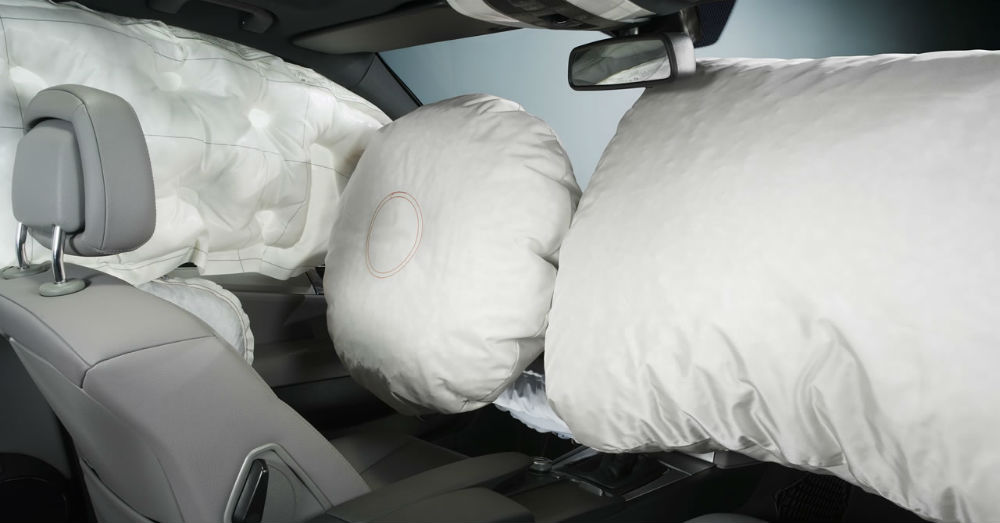A vehicle recall can be a taxing thing for any driver, especially when driving a brand new car. However, it can easily be argued that a recall on your vehicle that’s been paid off for years is just as taxing, as it leaves you with the question as to whether or not you should make the repairs and unload the car or keep it around and wait for something else to go wrong. It would seem that there is something going wrong in a vehicle every time we turn around, but recalls aren’t nearly as prevalent as the news media would have us think.
Whether they’re a frequent happening or not, recalls happen, and they can be somewhat of a pain. First of all, the necessary repairs during a recall leave us without a vehicle for a period of time, however small that may be and that’s emotionally and sometimes financially taxing.
Some of the biggest auto manufacturers have been forced to recall hundreds of thousands of vehicles, and in some cases, millions of some of the most popular vehicles on the market are affected. It’s difficult to keep up with the latest items on the recall list, and the massive airbag recall has drivers waiting by their mailboxes to see if their cars are going to be part of the next round.
How Will I Know?
There are easier ways to see if your car is part of the recall list, rather than just playing the waiting game. There is a national website that lists all of the cars and SUVs that are part of the latest issue that is forcing an automaker to pull cars off the market for repairs.
The National Highway Traffic Safety Administration is responsible for ensuring the safety of every vehicle on the road, and their website is a treasure trove of information to avoid the anticipation of a recall letter. Simply enter your VIN on the site, and get instantaneous results.
The big news in the recall world right now centers around airbags manufactured by Japanese supplier, Takata. What seemed to only be impacting Honda vehicles for a long period of time has now spread to dozens of different automakers. In the middle of February, BMW, Volkswagen, and Daimler AG announced the recall of nearly one million vehicles due to faulty airbag inflators. What was thought to be a brand specific issue has spread like wildfire with the newest number of vehicles totaling over five million.
The Takata Airbags
The recall on Takata airbags started in 2009, and Honda was forced to pull over two million vehicles to repair the faulty airbags. Not long after Honda’s airbag crisis started, other brands started being declared defective at an alarming rate. Nearly twenty-five million vehicles are affected by the defective airbags, leading to the biggest recall in history, and seriously impacting new sales numbers for Honda. According to news reports, Takata has offered little in the way of a statement, outside of making a variety of excuses meant to cover themselves.
While the Takata airbag recall seems to be the biggest news as it is incredibly widespread, there is yet another airbag issue that has recently been reported, although there is no news yet as to how widespread it will be.
Continental Airbags, a German company, has said that some of their airbag control units are corroding at an alarming rate, and thus leading to airbag failure. As of right now, the numbers contend that over two million vehicles could be potentially recalled as a result, but no official moves have been made, thus far. However, if there is a widespread recall, it will impact vehicles made by Honda, Volkswagen, Mazda, Volvo, and Mercedes.
Other Recalls
In smaller news, GM has also had to recall some of their 2016 vehicles due to failure in the power steering system in the 2016 Buick Regal. As a result, GM is systematically issuing notices to their owners, and replacing the rack and pinion unit for free. If you happen to own one of these vehicles, head over to the NHTSA site and check to see if your VIN is among those that will be recalled and get a jump on the repairs.
Toyota is also facing some major recalls in RAV4 models manufactured from 2006-2012 as it has been discovered that the rear seat belts are being cut by the seat design, and are therefore ineffective in the event of a collision. With a potential 1.2 million vehicles affected by this particular recall, Toyota is issuing a recall notice to RAV4 owners. However, repairs will not start until the end of March, as the protective covering for the seat assembly will not be available prior to that date. If your vehicle is on the list for recall, contact Toyota’s customer service division to find out details as to when the repairs will start.
A great deal of people have recently been remarking on the pain of these recalls, complaining that they shouldn’t have to happen. However, when weighed against the alternative, getting your vehicle repaired for free isn’t all that big of an issue. Don’t wait out the recalls or ignore a notice, if your car is one of the many on the recall list, get it fixed immediately.
This post may contain affiliate links. Meaning a commission is given should you decide to make a purchase through these links, at no cost to you. All products shown are researched and tested to give an accurate review for you.

